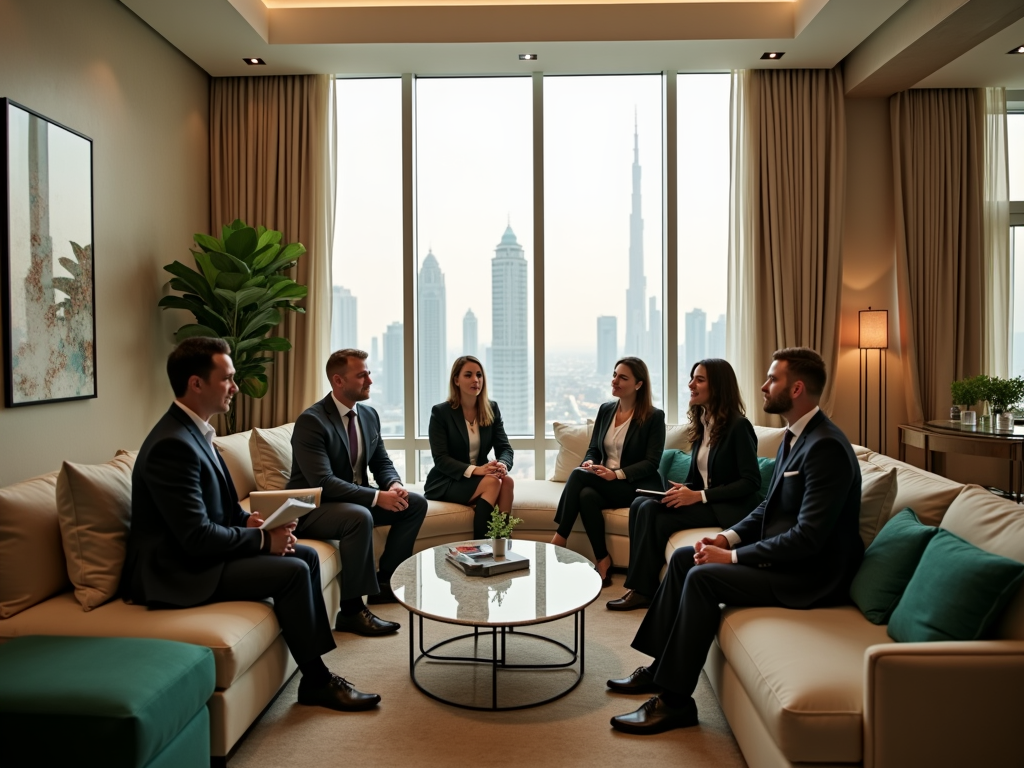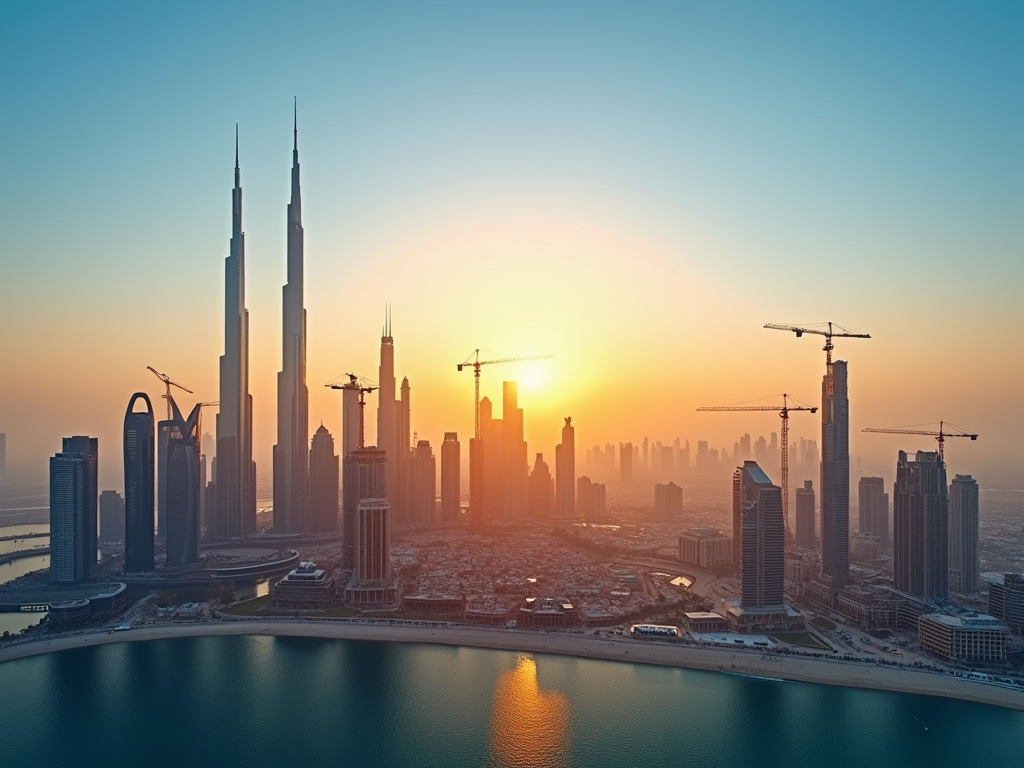Dubai’s real estate market remains a beacon of stability, even amidst worldwide economic fluctuations. This resilience can be attributed to a combination of strategic government policies, diverse property offerings, and a robust tourism sector. Unlike many global markets that experience dramatic downturns during economic crises, Dubai has managed to maintain attractiveness and growth. In this article, we will explore the key factors contributing to the resilience of Dubai’s real estate market.
Strong Government Support

The Dubai government plays a pivotal role in nurturing the real estate sector. Through flexible legislation, attractive visa policies, and initiatives aimed at boosting foreign investment, the authorities have created a conducive environment for property buyers and developers alike. Some of the ways in which the government supports the real estate market include:
- Regulatory frameworks that protect property ownership rights.
- Tax incentives, such as no property tax, which encourages investment.
- Long-term residency options for property investors, enhancing market appeal.
- Investment in infrastructure and development projects that enhance property values.
- Promotion of Dubai as a global business hub, increasing demand for commercial properties.
These measures not only bolster buyer confidence but also attract international investors keen to tap into Dubai’s growth story, further reinforcing the real estate market’s resilience.
Diverse Portfolio of Properties

Dubai offers an extensive and diverse portfolio of real estate options, catering to a wide range of tastes and budgets. From luxurious villas in gated communities to stylish apartments in the heart of the city, the variety assures that there’s something for everyone. This diversity can be broken down into several key segments:
- Luxury Real Estate: High-end properties often remain sought after, regardless of global economic conditions.
- Mid-Range Homes: Affordable housing options continue to attract young professionals and expatriates.
- Commercial Properties: Offices and retail spaces gain traction as businesses increasingly set up operations in Dubai.
- Tourist-Friendly Developments: Short-term rental properties thrive due to the consistent influx of tourists.
This variety guarantees that the market is not overly reliant on a single segment and provides resilience during economic storms, as shifts in demand can be balanced across different types of properties.
Thriving Tourism Industry
A critical pillar of Dubai’s economic structure is its tourism sector. Known for its luxury shopping, vibrant nightlife, and major attractions such as the Burj Khalifa, tourism continues to expand, driving demand for real estate. The influx of tourists directly impacts various property markets, as rental properties see consistent occupancy rates. Key factors include:
- Year-Round Events: Hosting events like Expo 2020 helps sustain visitor numbers.
- Cultural Appeal: A unique blend of modern amenities and rich heritage attracts travelers from around the world.
- Investment in Infrastructure: Ongoing upgrades to airports and transport systems improve accessibility, boosting tourism.
- Favorable Climate: Warm weather throughout the year makes Dubai an attractive destination.
This enduring appeal ensures that the real estate market benefits from a stable flow of rental income, even when other sectors face challenges.
The real estate industry in Dubai is also marked by its adoption of innovative technologies and smart city initiatives. From high-tech building management systems to virtual property tours, the integration of technology enhances property experience and investor confidence. Key technological advancements include:
- Smart Buildings: Properties equipped with automation features appeal to modern buyers.
- E-Real Estate Platforms: Online buying and selling platforms simplify transactions for everyone.
- Data-Driven Insights: Access to market analytics helps investors make informed decisions.
- Virtual Reality Tours: Offer potential buyers a realistic view of properties without needing to be physically present.
These innovations not only streamline processes but also keep Dubai at the forefront of global real estate trends, assuring potential buyers and investors of a forward-thinking market.
Investor Confidence and Global Appeal
One of the most crucial factors in the resilience of Dubai’s real estate market is the unwavering investor confidence it commands. Global investors view Dubai as a safe haven due to its political stability and progressive economy. Factors backing this perception include:
- Strong Economic Fundamentals: A diversified economy significantly reduces dependence on oil.
- Strategic Location: Dubai serves as a gateway connecting East and West.
- Transparent Legal Framework: Robust dispute resolution mechanisms encourage investment.
- Stable Currency: The UAE Dirham is pegged to the US Dollar, providing monetary stability.
Ultimately, the combination of these factors fosters a solid environment for real estate investment, allowing Dubai to remain resilient to various external economic pressures.
Conclusion
In conclusion, Dubai’s real estate market showcases remarkable resilience amidst global economic shifts, driven by strong government support, diverse real estate offerings, a thriving tourism industry, technological innovations, and unwavering investor confidence. These factors collectively create a robust environment that continues to attract investors and buyers from around the globe. As the market evolves, it is poised to weather potential challenges and maintain its position as a premier real estate destination.
Frequently Asked Questions
1. What government policies support Dubai’s real estate market?
The Dubai government supports the real estate sector through regulatory protection, tax incentives, long-term residency options for investors, and infrastructure investments.
2. How does the tourism industry affect Dubai’s real estate market?
The tourism industry increases demand for rental properties, ensuring consistent occupancy rates and steady rental income for investors.
3. What types of properties are available in Dubai?
Dubai offers a diverse portfolio, including luxury real estate, mid-range homes, commercial properties, and tourist-friendly developments catering to various segments of buyers.
4. How does technology influence the Dubai real estate market?
Technology enhances the real estate market through smart building innovations, online platforms for transactions, data analytics for decision-making, and virtual tours for prospective buyers.
5. What attracts global investors to Dubai’s real estate market?
Investor attraction stems from Dubai’s strategic location, strong economic fundamentals, a transparent legal framework, and currency stability, all of which create a secure investment environment.
